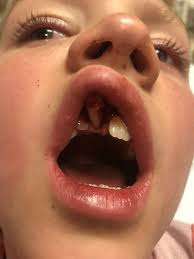
Dental emergency though uncommon but can happen anytime, anywhere and to anybody. We provide emergency dental care for such situations.
Knocked-Out Tooth
A multitude of teeth is knocked out every year. The main causes are fights and sports injuries.
These knocked-out teeth can often be re-implanted under favorable conditions. If the tooth can be replanted within minutes after the accident, there is a greater chance the tooth will be retained for life.
Precautions to be taken once the tooth is knocked out:
- Locate the avulsed tooth.
- The tooth should be picked up by the crown portion( one that has enamel) and NEVER by the root.
- If the tooth is dirty or contaminated, it should gently be rinsed with milk or water. Do not use a brush to remove dirt from the root portion of the tooth.
- The two most important factors which govern the long-term success of a reimplanted tooth are the speed of reimplantation and the use of a proper storage medium when the avulsed tooth is out of the mouth.
- Do not store the tooth in water. USE milk or the patient’s own saliva for storage during transportation of the tooth.
- The time that the tooth remains out of the mouth is also critical. The American Association of Endodontists (2004) recommends reimplanting the fully formed tooth (closed apex) if it has been in a storage medium of milk, saline, or saliva tooth even up to 60 minutes or less of extra-oral dry time (tooth out of the bony socket)
- Kindly Note: If a primary (baby) tooth is knocked out, it should NOT be replanted as it could damage the permanent tooth bud in formation. Parents should NOT try to place the baby tooth back into the socket, and should immediately seek the advice and treatment of their dentist.
- It is advised that if the accident victim shows any signs of head injury, unconsciousness, nausea, or persistent headaches, they should be first evaluated for their head injury by proper medical personnel. Once a head injury is ruled out, they may proceed to the dentist for treatment of the avulsed (knocked out) tooth. A tooth or teeth should not be immediately reimplanted at the site of injury if the injured person is unconscious for fear of aspiration.
Lacerations and cuts
Any kind of cut to your face and/or the delicate soft tissues inside your mouth is a dental emergency that calls for immediate care and attention to prevent further tissue damage and infection.
Immediate intervention includes the application of a pressure pack and ice to the affected area to stop bleeding. Repeated rinsing should also be avoided.
Contact us immediately to ascertain the extent of injury to determine the need of stitching the wound and to make sure that there are no associated injuries of facial bone such as those of jaw, nose, chin, or cheek.
Injury to facial bones might need a maxillo- facial surgery. Dental splints or dentures may also be required to supplement the healing process following jaw surgery.

Toothache
Toothache is the most common dental emergency. Toothache in Infants: Teething is a sign that your child’s gums are sore. This is perfectly normal. It is easily relieved by allowing the baby to suck on a teething ring, or gently rubbing your baby’s gums with the back of a small spoon, a piece of wet gauze, or even your finger.
For babies under the age of 4, teething rings and pacifiers can be safely used to facilitate the child’s oral needs for relieving gum pain. In young children, toothaches are normally caused by erupting teeth. However, cavities to are very common in these aging adults, toothache is normally pointed to a broken decayed tooth.
Whatever the cause of a dental emergency, be sure to contact us immediately!
